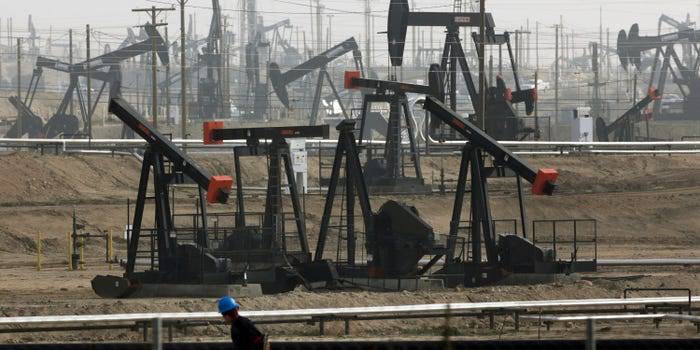In an announcement that promises to reshape the landscape of Nigeria’s energy sector, the Nigerian Upstream Petroleum Regulatory Commission (NUPRC) has outlined an ambitious investment strategy aimed at bolstering the country’s oil and gas production capabilities. According to the NUPRC’s Chief Executive Officer, Mr. Gbenga Komolafe, during a panel session at the Nigerian International Energy Summit (NIES) 2024 held in Abuja, the commission has set its sights on attracting approximately $17.64 billion in investment inflows. This financial infusion is expected to come from the development of 51 oil fields that were approved in 2022 and 2023, reflecting a strategic move to enhance Nigeria’s position in the global energy market.
These 51 fields are anticipated to significantly increase Nigeria’s oil and gas output, with projected cumulative oil recovery and gas recovery estimated at 2.12 billion barrels and 13.13 trillion cubic feet, respectively. This expansion in production capacity is part of a broader effort to meet growing energy demands and secure Nigeria’s energy future.
In addition to the development of these fields, the NUPRC has outlined further investment targets aimed at expanding Nigeria’s drilling operations and enhancing well productivity. The commission expects to see around $2.5 billion invested in the drilling of 175 wells throughout 2022 and 2023, alongside an additional $2.68 billion allocated for 842 well workovers and other well intervention activities. These initiatives are projected to lead to an increase in average oil production, thereby strengthening Nigeria’s output and revenue from the oil and gas sector.
One of the key strategies employed by the NUPRC to achieve these ambitious goals involves fostering closer collaborations with International Oil Companies (IOCs) to expedite the development of high-volume, deep offshore assets. Such partnerships are crucial for unlocking the vast potential of Nigeria’s deepwater reserves, which are expected to play a significant role in the country’s energy strategy.
Amidst global concerns over climate change and the environmental impact of fossil fuel extraction, the NUPRC is also taking proactive steps to mitigate emissions from Nigeria’s oil and gas operations. Despite Nigeria’s relatively low contribution to global emissions, the commission is leading the charge towards achieving a zero-flare target by 2030 and net-zero carbon emissions by 2060. Initiatives such as the Nigeria Gas Flare Commercialization Programme (NGFCP) demonstrate the NUPRC’s commitment to environmental sustainability. The NGFCP aims to commercialize flared gas, transforming it into a valuable resource while reducing environmental pollution.
To facilitate the success of these environmental initiatives, the NUPRC has established a College of Awardees, following the award of 49 NGFCP flare sites. This forum allows the successful entities to share experiences, connect with stakeholders, and access critical support systems, including world-class service providers, financiers, and multilateral agencies. This collaborative approach is designed to optimize the delivery of flare commercialization projects, aligning with Nigeria’s broader environmental objectives.
Technological innovation and digital transformation are at the heart of the NUPRC’s strategy for enhancing the efficiency and effectiveness of Nigeria’s upstream oil and gas sector. Over the past three years, the commission has transitioned from manual processes to embracing cutting-edge technologies, leveraging data analytics, artificial intelligence, and digital platforms. This shift has enabled the NUPRC to improve decision-making, enhance productivity, and ensure compliance with regulatory requirements.
The NUPRC’s commitment to innovation is mirrored by the Nigerian oil and gas industry’s adoption of advanced technologies. Companies operating in the sector are increasingly investing in data analytics, automation, remote monitoring, and predictive maintenance, pushing the boundaries of what is possible in oil and gas production.
Furthermore, the implementation of the Host Communities Development Trust (HCDT) provisions of the Petroleum Industry Act (PIA) by the NUPRC has played a crucial role in building confidence and promoting social inclusion among host communities. The commission has registered a total of 103 HCDTs and deployed an intelligent digital platform for reporting, monitoring, and ensuring transparent administration of these trusts. This initiative underscores the NUPRC’s commitment to sustainable operations and the well-being of communities surrounding oil and gas projects.
As Nigeria continues to navigate the challenges and opportunities of the global energy landscape, the NUPRC’s comprehensive investment strategy, emphasis on environmental sustainability, and focus on technological innovation and community engagement represent critical steps towards securing a prosperous and sustainable energy future for the country.



